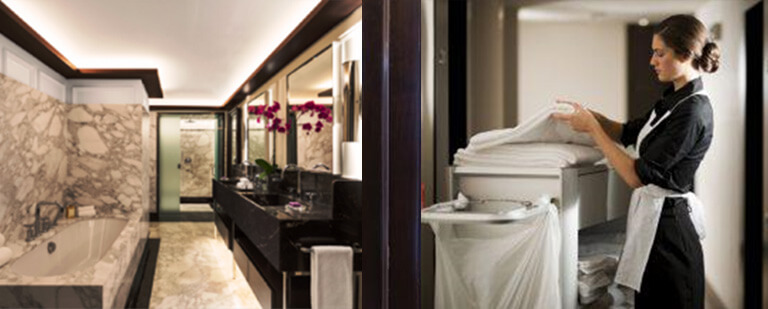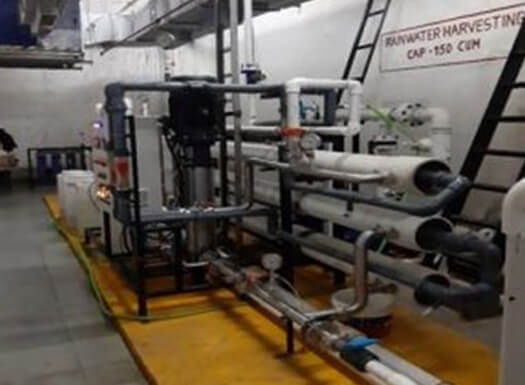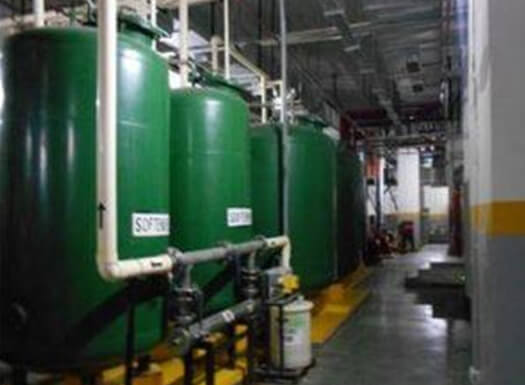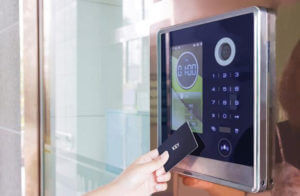Last year was almost challenging for the Indian hospitality industry as the previous year. But with the success of the vaccination program, gradual relaxation of travel curbs, and other restrictions, the industry witnessed a return of demand and volumes picked up. Contributing factors were the emergence of hybrid working models, enabling professionals and leisure travellers to work from anywhere, in-city staycations, weddings, special purpose groups and some traction in domestic business travel towards the final quarter of last year. Between managing health precautions and ever-changing consumer trends, the hotel industry is embracing innovation and smart technology to cater to consumers’ new travel preferences.
The pandemic, according to McKinsey, has hastened digital transformation by 10 years, and today’s travellers are far more tech-savvy than ever before. From online planning and booking to preferences for contactless check-in, mobile keys, voice assistants, and texting with hotel employees, many of today’s tourists’ service expectations revolve around self-service and do-it-yourself.
Considering the key takeaways from last year, here are a few trends that will continue to shape the industry in 2022 and beyond.
1. Smart Rooms
Internet of Things (IoT) is now being leveraged to enhance services offered in a guest room. Hotel amenities are now increasingly going digital by streaming content from smartphones on the in-room television, e-concierge, temperature & light controls on the smartphone, digital keys are already in play. Completely voice-activated controls may seem futuristic today but may soon become the norm. Another factor that will enhance the pace of tech adoption is that most of these innovations require minimal changes to modern guest rooms and the ‘smart hoteliers’ would be quick to implement the newest technologies to stay ahead in the game.
2. ESG & Sustainable Practices
Focus on going green and environmental sustainability is not new, however, the importance is today’s traveller/hotel-guest attaches to a brand’s attitude/actions towards sustainability, has increased quite a lot. Today’s informed customer wants to stay in hotels that have integrated green practices in every aspect of their business. Simply offering guests to opt-out of daily linen change and other token gestures are not enough anymore; today’s guests want hotels to adopt environment-friendly practices and invest in green tech like installation of solar panels, offering vegan/vegetarian menu choices, LEED certifications, waste management, water conservation, minimize plastic usage, to name a few. The hotel architecture is changing as well. Instead of including as many rooms as possible in a large structure, importance is given to environments that promote physical and mental wellness to their guests. The use of material innovation also helps us create more virus-resistant surfaces with the goodness of natural raw materials is also on a rise. Going green not only increases the guest’s satisfaction levels but also helps hotels bring down the operating costs substantially. Focus on ESG is gaining traction amongst hotel companies and investors, customers, and even prospective employees.
3. Changing Workforce & Talent Management
Increased integration of technology in hotels means that an employee’s tasks are changing and the workforce itself is changing. There is a growing focus on health & safety, work-life balance, ‘gig’ work & human resources technology.
Many businesses/sectors (other than hospitality) are undergoing transformation and adopting a customer-centric approach; thereby generating a need of employees with a customer-centric mindset & better honed soft-skills. Having already undergone specialized trainings and worked in a totally customer-focused industry, hotel employees are a natural fit for these new-jobs in other industries/sectors like banks, insurance, financial services and even hospitals. These sectors often offer better compensation and seemingly an overall better work-life balance. There has been an exodus of hotel employees to other industries in the past few years creating a talent crunch for hotels. Hotel leaders need to be aware of these changes and able to attract, retain the right talent and keep employees ‘happy’.
4. Technology
Pandemic triggered the need for the hospitality industry to leverage technology quickly and tackle the challenges thrown by the pandemic. Several tech innovations like electrostatic sprayers to sanitize guest rooms, digital keys, e-concierge, e-menus helped the industry in dealing with the challenges and meeting new customer expectations. In the last two years, many traditionally customer-facing services have become contactless to reduce the transmission of the virus with contactless mobile check-in/check-out and contactless payments. As technology innovation continues to evolve, hospitality institutions will need to adapt to remain ahead of the curve, for instance, fingerprint or face recognition could soon become an expected convenience for guests accessing their hotel rooms, much like how it is expected with smartphones. Implementation of smart technologies like IoT and AI helps optimize costs, improve productivity and predictive maintenance. Most of these technologies start yielding returns within a short span of time & have short payback periods. The hospitality industry needs to capitalize on features such as immersive virtual tours to create a digital environment for consumers to picture themselves in before they book their holiday – a trend that is expected to only rise.
The last few months have taught us to become more adaptable and relook at our business strategies and learnings from these helps in shaping the future for the hospitality industry.
5. Traveller Preferences
Travellers today are looking for new experiences, whether through activities, gastronomy, sporting activities, or specific interests like music, etc. Armed with internet sourced knowledge and with an open mind, the global traveller of today is choosing funky motels, camping/glamping, even emerging destinations that are not popular yet, and lifestyle hotels; with more diverse options on offer and travellers selecting destinations & hotels based on multiple different criteria it’s important that the hoteliers stay on top of the changing traveller preferences.
6. Hotel Business
I think a lot has changed in the last two years and the way forward for hotels is going to be different from the past. Focus has shifted from over-pampering guests with often meaningless frills (that came at a heavy cost and added little value) to offering services that today’s guest values & appreciates. Hotels will have to have leaner cost structures and invest in automation and technology. With increasing wage costs, it is also imperative that brands evaluate their services and ‘fit in’ what’s required and not waste money on irrelevant brand standards. For example, why waste money on an alarm clock in guest rooms when everyone today uses their smartphones to set alarms & reminders! Minimizing Capex and maintaining flexible Opex will be the way forward.
7. Hotel Design
Hotels design trends indicate that art, local community, uniqueness & sustainability will be the focus. Many travellers want to stay in hotels whose design captures the character of the destination, whether with local art or the architecture itself. Lobby, public areas, open spaces, and guestrooms all need to showcase nature as people today appreciate nature more than ever before. Hotels are treating lobby and public areas as social spaces & designing these as experiential spaces with unique designs incorporating shared workspaces to open kitchens to game rooms. Many brands are focusing on eco-friendliness and designing ‘green’ hotels. COVID has accelerated material innovation. Guests want to dine, work, and rest in environments that promote physical and mental wellbeing. Material design can help achieve this, whether through the development of more bacteria/virus-resistant surfaces or more natural materials.
Given the current external scenario, hoteliers need to focus on building resilient and more responsive business models. The last few months have taught us to become more adaptable and relook at our business strategies and learnings from these helps in shaping the future for the hospitality industry. If the Corona virus doesn’t spring another nasty surprise again, the hospitality industry is ready for a strong bounce back.





 The “new normal” has made it vital for hotel operators to review costs and explore innovative solutions not only to reduce energy & water consumption but also to work towards sustainable development. Hotels are introducing innovative tools like predictive guest room technology, smart lighting technology, AI and data-driven solutions, and green infrastructure to reduce energy consumption, thereby enabling them to lower operating costs considerably. At Chalet Hotels, we have taken several steps towards lowering our energy consumption, and we source the bulk of our power from renewable sources. Several initiatives have been launched to reduce our energy consumption; our HVAC plant rooms have incorporated additional measures like high-efficiency chillers, inline pumps, and low approach cooling towers with variable frequency drives with plant room optimizers for lower energy consumption. As a result, consumption of HVAC plant rooms reduces by more than 15 to 18 per cent. Notably, 51 per cent of our electricity was sourced from non-fossil fuel-based sources in FY 2021.
The “new normal” has made it vital for hotel operators to review costs and explore innovative solutions not only to reduce energy & water consumption but also to work towards sustainable development. Hotels are introducing innovative tools like predictive guest room technology, smart lighting technology, AI and data-driven solutions, and green infrastructure to reduce energy consumption, thereby enabling them to lower operating costs considerably. At Chalet Hotels, we have taken several steps towards lowering our energy consumption, and we source the bulk of our power from renewable sources. Several initiatives have been launched to reduce our energy consumption; our HVAC plant rooms have incorporated additional measures like high-efficiency chillers, inline pumps, and low approach cooling towers with variable frequency drives with plant room optimizers for lower energy consumption. As a result, consumption of HVAC plant rooms reduces by more than 15 to 18 per cent. Notably, 51 per cent of our electricity was sourced from non-fossil fuel-based sources in FY 2021.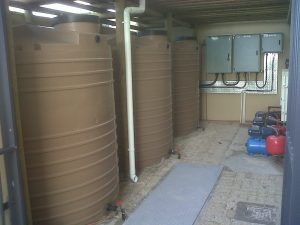 As part of our commitment to achieve our overall sustainable goals, we focus on alternative solutions and breakthrough innovations to reduce single-use plastic consumption. Our team is working hard to reduce the carbon footprint through more green practices, which can still be effective in most business aspects even during the challenges resulting from the global virus outbreak.
As part of our commitment to achieve our overall sustainable goals, we focus on alternative solutions and breakthrough innovations to reduce single-use plastic consumption. Our team is working hard to reduce the carbon footprint through more green practices, which can still be effective in most business aspects even during the challenges resulting from the global virus outbreak. Hotels need to engage their guests through messaging and integrated service platforms about the initiatives undertaken for environmental causes and contribute to this cause during their stay. From an operational perspective, significant measures to train and educate staff about best practices. At Chalet Hotels, we continuously train and educate our staff on the need to conserve energy and the importance of working towards a sustainable future. We realise that effective communication and engagement with our guests and staff are important, and everyone needs to participate if we want to build a sustainable future.
Hotels need to engage their guests through messaging and integrated service platforms about the initiatives undertaken for environmental causes and contribute to this cause during their stay. From an operational perspective, significant measures to train and educate staff about best practices. At Chalet Hotels, we continuously train and educate our staff on the need to conserve energy and the importance of working towards a sustainable future. We realise that effective communication and engagement with our guests and staff are important, and everyone needs to participate if we want to build a sustainable future.
